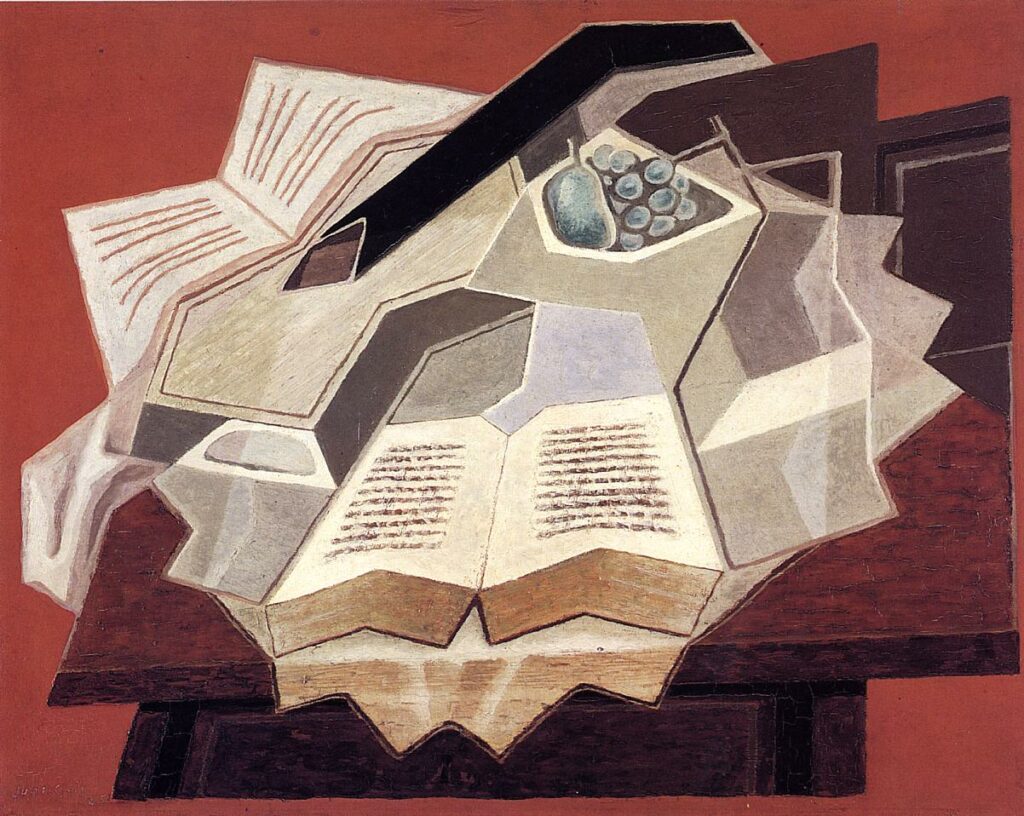
The seminar was called Honors 102. A mismatched collection of old dining chairs surrounded a large pine table covered with etchings from students long before my time. The windows, one on each end of the room, displayed the large white columns of the University of Mississippi Tri Delta house and, on the other side, a small brick courtyard with a koi pond in its center. A whiteboard covered an entire wall, and on it my professor would write ontology and epistemology and teleology, or, on the more interesting days, creation accounts or the problem of evil.
I was eighteen years old, and there were two things I loved more than anything else but didn’t know how to reconcile: the Christian God and the life of the mind. In many ways, Honors 102 was my worst nightmare. My self-constructed partition between faith and fact had emerged relatively unscathed after my high school years. While I had questions about God and the Bible, I had successfully muzzled them for fear that asking them meant that I didn’t have faith in God. Honors 102 threatened to tear the partition down, and I didn’t know what would happen when my neat and comfortable categories were scrambled.
Fear was my initial response. I did not know if my God could stand up to my questions. If he couldn’t, I would be devastated for at least three reasons:
- I would lose the God I loved. Even if He wasn’t real, the loss would be.
- I would have to deal with the shame that I had been living a lie.
- I would devastate my parents, who had brought me up in church and encouraged my faith.
However, I reasoned that even if these three things happened, I would gain something on the other side: truth. If I knew what was true, I could stop sidestepping uncomfortable questions. I could be what I felt was an authentic person, understanding why I believed what I did beyond an emotional or psychological level.
I decided that searching for truth was worth the risk of discovering that the truth wasn’t what I hoped. With significant fear and trembling, I threw my gauntlet down, writing in my first paper for the seminar that if Christianity was not true, I wanted to know. The partition was going to fall.
During our first few class meetings, objections to the faith posed by my professor, peers, and our class readings left me flustered and worried. How could God allow suffering? How could we understand the creation account in Genesis? Could we trust the gospels? Often, the only response I could offer was I don’t know.
As I began to investigate these questions, I realized that while many of them were new to me, they were not original to my peers, my professor, or any of the authors we read in class. People had been wrestling with many of them for thousands of years, and we were merely joining the crowd. However, knowing I was in good company did not make the questions less pressing.
For weeks, my nights in the library went into the wee hours and spilled into my dorm room once the library closed. I learned that I couldn’t explain why suffering felt wrong from a materialistic standpoint; I discovered many different interpretations of the opening of Genesis; I found evidence for the textual reliability of the gospels. At the same time, every question seemed to open a door to another, and I didn’t know if the constant barrage would ever end. One minute, I would be encouraged, the next, confused.
However, a pattern gradually began to emerge. With enough studying, an answer based on objective truth could be found to nearly every question, and these answers consistently pointed me back to the Christian God. My response to new questions gradually shifted from anxiety to curiosity.
The partition was falling, and the aftermath was hardly what I had expected. God had something better for me than a divided life. He wanted me to love him with all of myself—including the mind he gave me. He never condemned me for trying to understand what was true. He never got tired of me; he never got frustrated when I asked one more question. Instead, he met me at that long pine table, in the library, and in my professor’s office. He was teaching me what it meant, as Jesus says:
Love the Lord your God with all your heart and with all your soul and with all your mind. Matthew 22:37
When I realized that this was the kind of faith that God was inviting me into, God Himself became more compelling than the answers to my questions. What kind of God did I serve who truly was bigger than my questions? What kind of God did I serve who would meet me not just emotionally but also intellectually? The only response I had was often to close whatever book that promised to give me whatever answer I wanted and marvel at who God is.
A few weeks ago, I went back to that small brick courtyard for the first time in several years. The same pine table was there, and a few students sat around it, their faces buried in books. Even the fish in the koi pond were the same size.
I haven’t changed that much either. I still love God, I still love the life of the mind, and I still have a lot of questions. But what I learned in Honors 102 is that God welcomes my questions. He meets me today with the same tenderness that he showed me when I was a fearful and trembling college freshman. As it was in the Spring of 2014, my response is often to pause amid my search for answers and worship the God of all truth.
–
About the author.
© Olivia Davis 2023, all rights reserved
Leave a Reply